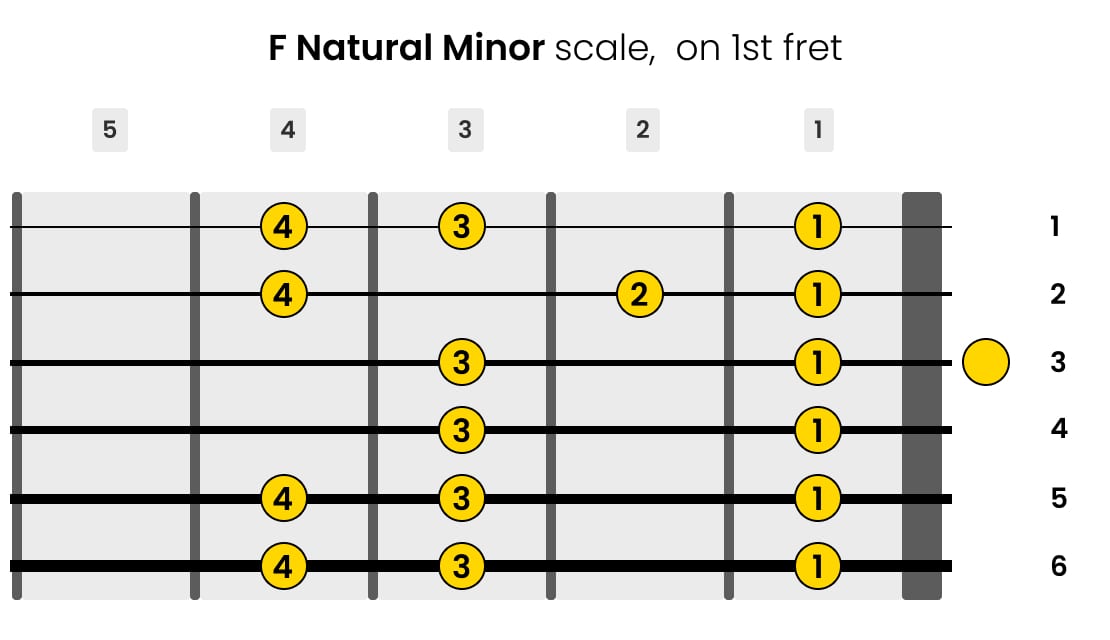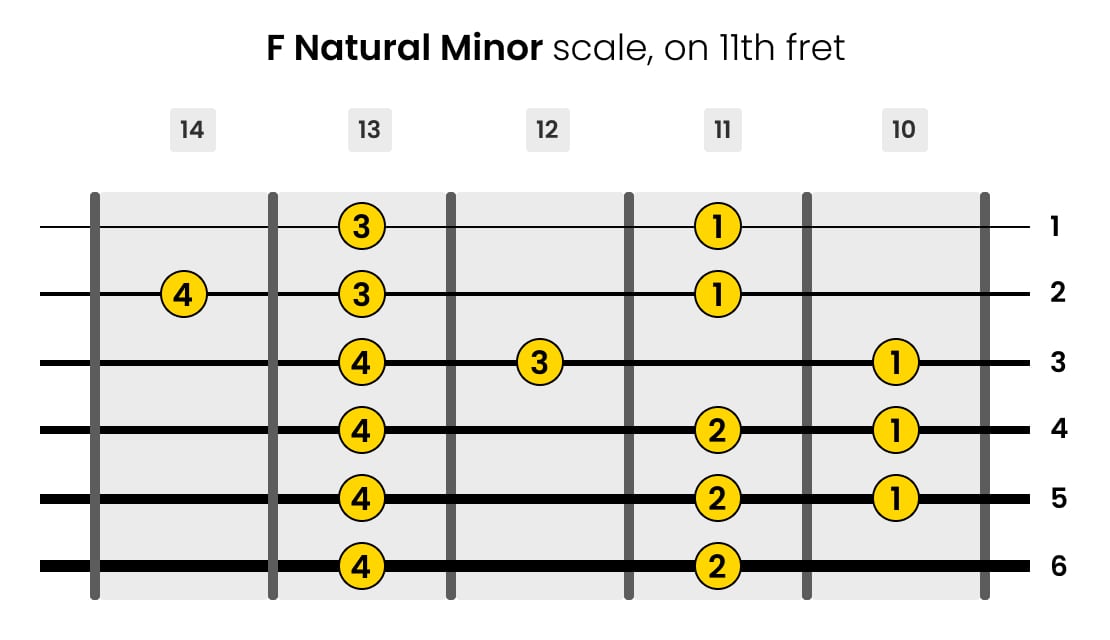F Minor guitar scale for left-handed players: how to play all main positions. Convenient tabs and charts next.

F Minor scale is a note sequence in minor tone with a main root note E. These notes are played in a specific order, going up and down in a pattern.
There are three kinds of minor scales:
- Natural Minor: F, G, Ab, Bb, C, Db, Eb, and F
- Harmonic Minor: F, G, Ab, Bb, C, Db, E, and F
- Melodic Minor: F, G, Ab, Bb, C, D, E, and F
Scales have many positions and patterns on the guitar fretboard. To better memorize and practice scales divide them into “box” patterns. These patterns are played within 4-5 frets and no more than 3 notes per string.
Next, we will look at the most common “boxes” between 0 and 12th fret. After the 12th fret scale patterns are repeated.
How to Play Left-Handed F Minor Scale
To play F Minor scales on left-handed guitar use the chart below. The symbols indicate on which fret which string to press and which right-hand fingers to use.

Note: The charts below show the basic finger positions. But you may be more comfortable playing a particular scale in a different way. Try, practice and you’ll find the most suitable scheme for you.
To play accurately and quickly, try to play compactly with minimal hand and finger movement.
F Natural Minor Scales Left-Handed
Scale positions are not determined by the fret number as with chords, but by the note at which the pattern begins.
The F Minor scale is an exception. Its 1st position begins on the first fret of the sixth string.
For simplicity, I will associate the scale positions with the fret numbers.
First position:
Start playing the scale with the index finger on the 1st fret of the 6th string.

On 6th fret:
Start playing the scale with the index finger on the 6th fret of the 6th string.

On 11th fret:
Start playing the scale with the middle finger on the 11th fret of the 6th string.

